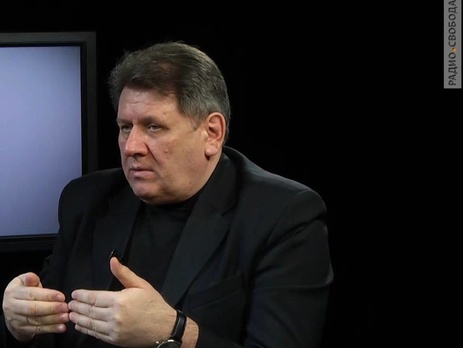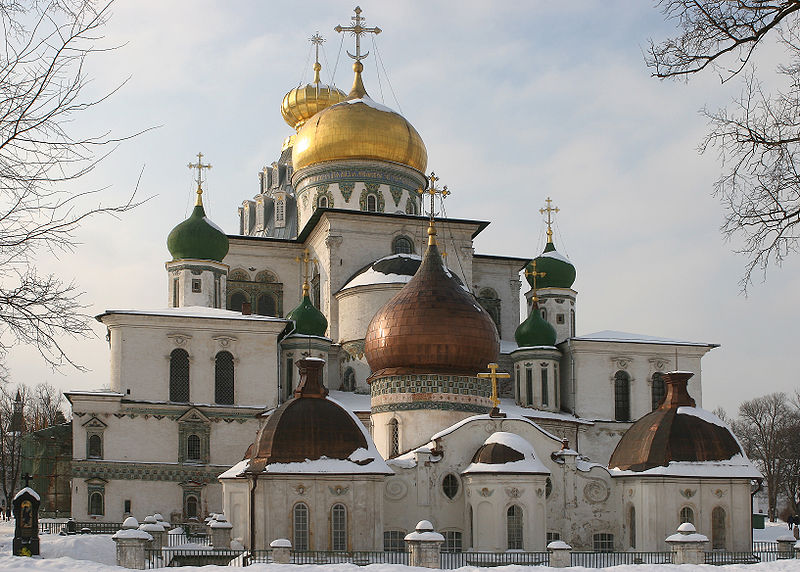Viktor Girzhov, the head of the Ukrainians of Moscow Union who was recently denied entry into Russia, says that the number of Ukrainians in the Russian Federation has declined by a million over the last decade not because of deaths or departures but because of their re-identification as Russians.
Girzhov says that the efforts of the Russian authorities to shutter Ukrainian organizations in Russia and to prompt ethnic Ukrainians living there to re-identify as ethnic Russians began long before the war in the Donbas.
And he suggests that if there is no reaction from Kyiv or from the international community, the current Russian government will take even more harsh steps in this direction, closing down the remaining Ukrainian organizations, exiling their leaders, and forcibly re-identifying Ukrainians as Russians. Unfortunately, there has been little outcry.
Girzhov, who had been living in Moscow for 20 years, is married to a Russian citizen, and is the responsible secretary of the Ukrainian Congress of Russia
was taken off the Kyiv-Moscow train on October 14 and told by Russian border guards that he could not enter Russia for five years.
This was hardly unexpected, he suggested. Moscow has done the same to others, and Russian officials have asked him “why [he] lives in Russia and speaks against it?” Moreover, they have closed several Ukrainian organizations over the past five years which were part of the Ukrainian Congress of Russia.
He said that he was certain that “the FSB cannot make such decisions independently” and that “all this was done consciously and at a minimum with the agreement of Vladislav Surkov and that of the latter with Vladimir Putin himself.” He suggested that this is part of a Kremlin effort to “cleanse the [Russian] information space of Ukrainian influence.”
Moscow began its current efforts to destroy Ukrainian public organizations in 2010 when it liquidated first the Union of Ukrainians of Russia and then the Federal National-Cultural Autonomy of Ukrainians of Russia. Ukrainian activists created the Ukrainian Congress of Russia, but the Russian justice ministry has refused to register it.
But perhaps the most pernicious thing the Russian authorities have done is to set up nominally Ukrainian organizations which in fact are anti-Ukrainian in their essence. Thus, the president of the Ukrainians of Moscow organization routinely says that “Russians and Ukrainians are a single nation.”
“This is an absolutely Ukrainophobic Kremlin project,” Girzhov says, “the task of which is to create the image of freedom of national minorities.” Its leader is someone who has never worked a day of his life in a Ukrainian movement but who enjoys direct access to and support from the Moscow authorities.
Despite all this, the Russian Federation still has “the largest Ukrainian diaspora in the world,” with some two million people, of whom 254,000 live in Moscow. But “as a result of repression and assimilation, we have already lost almost a million fellow citizens.” In 2002, there were three million ethnic Ukrainians there; in 2010, only two million.
“The rest did not die and did not leave the Russian Federation; they simply rejected their roots and ceased to position themselves as ethnic Ukrainians. To a certain extent one can understand why. But this is the result of moral and psychological pressure which began long before the war and as we see is continuing,” Girzhov says.
Girzhov says that he plans to continue to work for the good of Ukraine but on Ukrainian territory as it is unlikely he’ll be able to go back to Russia anytime soon. His wife will be joining him in a few days. As to his sons, the question is open: they may have problems getting passports because of what has happened to him.




